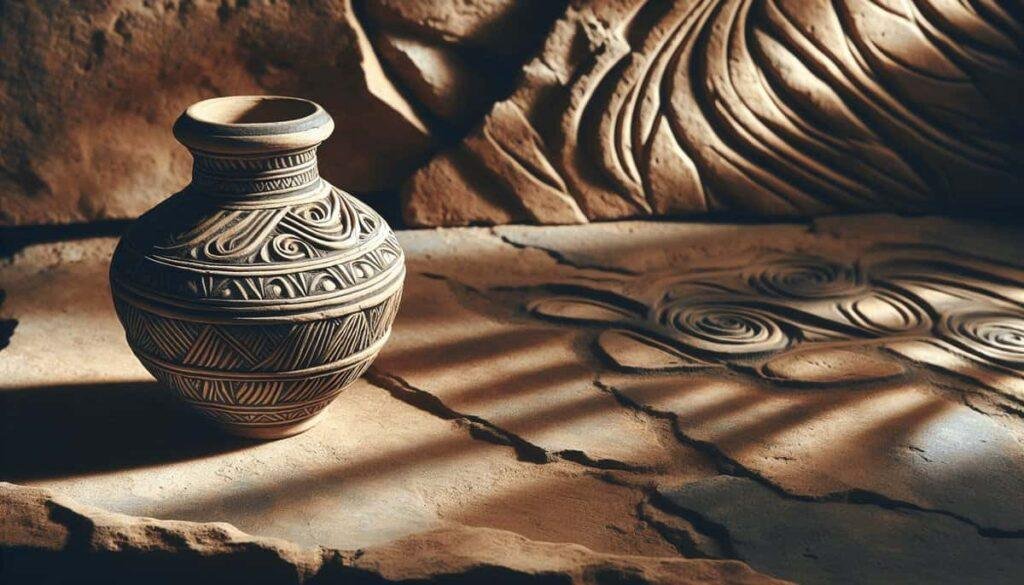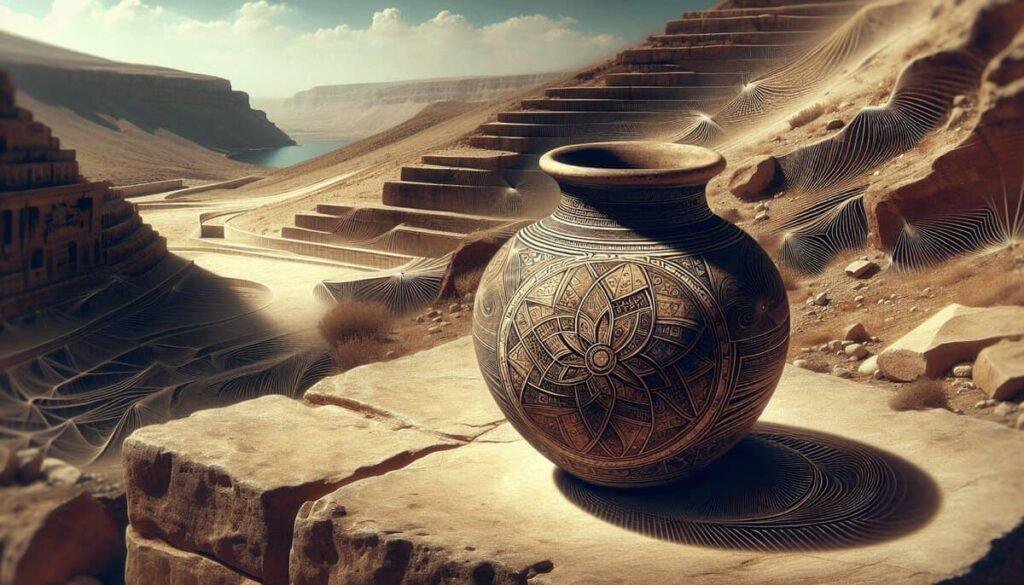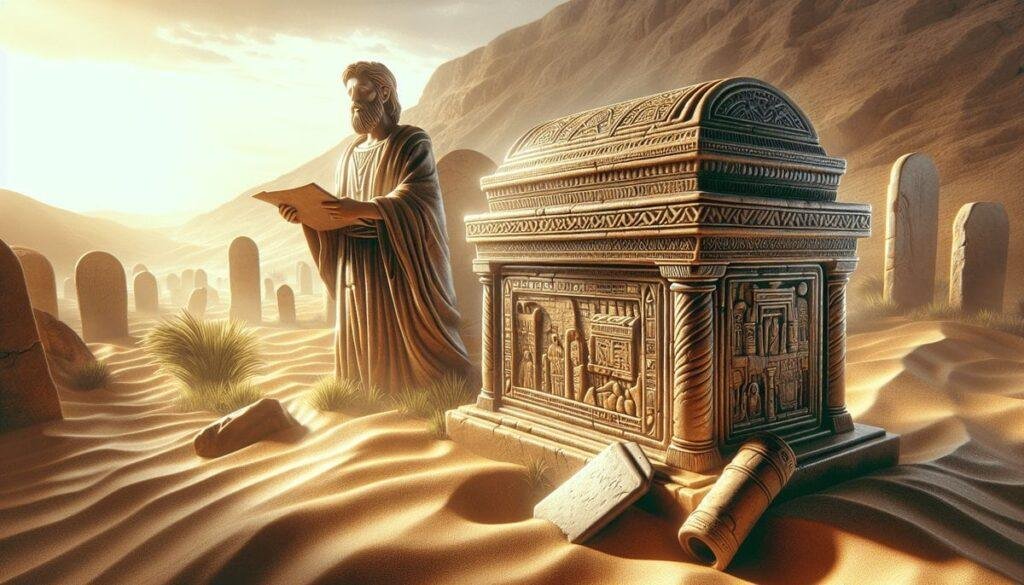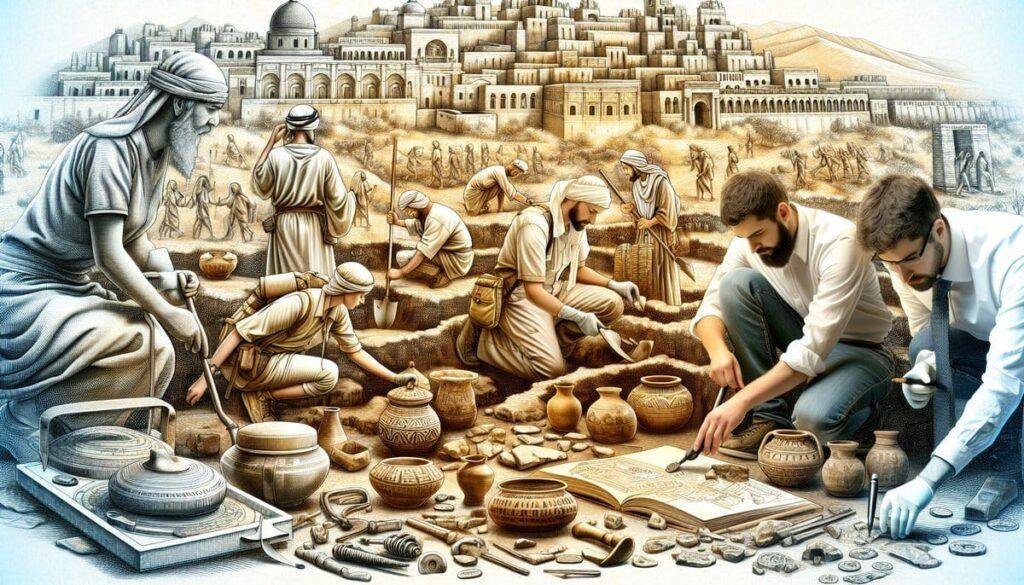What do you think about the eternal tug-of-war between free will and destiny? This age-old debate has resurfaced recently, especially in the context of biblical archaeology and the artifacts that shed light on Israel’s past. One striking example is the last Qumran jar, a relic steeped in history, mystery, and implications for the future. So, grab a cup of coffee and let’s unpack the fascinating realm where archaeology meets philosophy.

The World of Qumran: A Brief Overview
Let’s start with a bit of context about Qumran itself. Nestled near the Dead Sea, this ancient site was home to a community known as the Essenes, who are believed to have composed the famous Dead Sea Scrolls. You might be wondering—what’s so special about this community? They held distinctive beliefs and practices that challenged the norms of their time, setting the stage for discussions that resonate even today.
The Significance of the Dead Sea Scrolls
The Dead Sea Scrolls, discovered in the late 1940s and early 1950s, are considered one of the most significant archaeological finds ever. They contain ancient Jewish texts, including biblical manuscripts, sectarian writings, and poetry. When you think about the depth of history captured in these documents, it’s both awe-inspiring and a little overwhelming.
These scrolls provide a window into the beliefs, practices, and interpretations of the Hebrew Bible by the Essenes, contributing to our understanding of Judaism before the emergence of Christianity. Want to pinpoint a significant aspect? Let’s talk about prophecy and its implications on free will versus destiny.
Prophecy in the Essene Community
The Essenes were no strangers to prophecy. They believed in divine messages that foretold future events, especially concerning the fate of Israel. Within this context, one might ask—does the presence of prophecy imply a predetermined future, or does it coexist with human agency? It’s a compelling question to consider.
The Last Qumran Jar: A Vessel of Knowledge
Now, let’s zoom in on the last Qumran jar. Discovered amidst a treasure trove of artifacts, this jar has sparked intrigue not just due to its physical properties but for the philosophical implications it holds. What can it teach us about the nature of existence for ancient peoples and, by extension, for us?
Historical and Archaeological Context
Dating back to the late Second Temple period, this jar was likely used to store valuable materials such as oils or perhaps writings from the community at Qumran. A simple vessel, yet it stands as a testament to the sophisticated craftsmanship of that era. Picture artisans meticulously shaping clay, infusing a piece of their soul into each creation.
The jar becomes a metaphor for human existence—shaped by both external influences and personal choices. It’s easy to view an object as purely utilitarian, but this jar invites deeper reflection on its significance.

Free Will vs. Destiny: The Philosophical Debate
When grappling with the concepts of free will and destiny, your mind may swirl with questions. Is our path preordained, or do we forge our own route? In Jewish thought, this debate takes on unique characteristics, especially when viewed through the lens of the Essenes.
Understanding Free Will in Ancient Thought
The Essenes believed in a responsive relationship with God. Their texts suggest that while God may have a grand design, individuals have the capacity to choose their paths. This belief in free will allows for moral accountability. If choices matter, then individuals can shape their destinies despite overarching divine plans.
- Key Points of Free Will:
- Responsibility for actions.
- The capacity to choose in the face of divine influence.
- Moral and ethical implications.
The Concept of Destiny in the Scriptures
Contrasting free will, we have the notion of destiny, often viewed through the lens of divine prophecy. The Essenes recognized prophecies that unequivocally laid out future events, which can seem to negate the idea of free choice. Many biblical passages endorse this view, highlighting how God’s plans unfold as intended.
- Key Aspects of Destiny:
- Foreknowledge of events.
- The idea of divine intervention.
- Predetermined paths for nations and individuals.
Finding Common Ground: A Synthesis
Rather than seeing free will and destiny as mutually exclusive, the Qumranites might have viewed them as intertwined. Their very existence was likely a dance between divine influence and human choice. As we examine the last Qumran jar, we can visualize this interplay in action—a vessel that holds both the divine inspiration of its creators and the everyday choices of life in ancient Israel.
Relevant Texts: Qumran and Prophetic Literature
To illustrate this interplay further, let’s look at some scriptural references and how they align with the thoughts of the Essenes. Engaging with these texts offers insight into how ancient people reconciled these profound concepts.
The Book of Isaiah: A Prophetic Pillar
Isaiah stands as one of the most significant prophetic texts in the Hebrew Bible. Its themes revolve around hope, judgment, and the destiny of Israel. Key verses touch on both divine sovereignty and human response, encouraging readers to reflect on their roles in shaping the future.
For instance, consider Isaiah 40:31: “But those who hope in the Lord will renew their strength.” This line suggests a dynamic relationship between humanity and the divine—while God has a plan, individuals are called to actively participate in it.
The Book of Jeremiah: A Call for Choice
Jeremiah also presents an interesting perspective on free will and destiny. As God’s messenger, Jeremiah repeatedly calls the people to turn away from their sins, implying that they possess the ability to choose differently. With verses like 29:11—”For I know the plans I have for you, declares the Lord”—one can see the tension between a predetermined future and personal choice.
The Dead Sea Scrolls: Secular and Sacred Messages
Among the Dead Sea Scrolls are excerpts that provide insights into the Essenes’ philosophical leanings. These writings speak to a belief in divine matters while simultaneously upholding a commitment to moral choices. They stress the importance of living according to the teachings of Torah and the need for accountability, illustrating the delicate balance between free will and destiny.
Cultural Reflections: Implications for Today
As you ponder the intricacies of these ancient discussions, consider how they resonate with contemporary issues. The debate between free will and destiny is far from an abstract philosophical exercise; it holds relevance today.
Personal Responsibility in a Complex World
In a time where external forces—such as politics, culture, and technology—often shape our choices, it’s crucial to remember the significance of personal agency. How do you engage with your choices in a world filled with uncertainties? The dual lens of free will and destiny encourages you to find power in your decisions, even amidst chaos.
Theology in the Modern Era
Theological discussions still grapple with these age-old themes. Many individuals wrestle with the implications of divine foresight and human freedom. Whether you practice a faith or indulge in philosophical musings, the interplay between choice and fate can illuminate your understanding of modern life.
Interpersonal Connections and the Collective Future
Reflecting on free will versus destiny enriches our interpersonal relationships and community interactions. How do your choices impact others? In understanding this framework, you can become more aware of how personal decisions create ripples in the collective experience, ultimately influencing the trajectory of communities and societies alike.
Global Perspectives: Interpretations Across Cultures
Interestingly, these concepts aren’t confined to Judeo-Christian thought. Various cultures and religions offer rich interpretations of free will and destiny. For instance, in certain Eastern philosophies, the idea of karma intertwines with the notion of choices shaping future circumstances. By examining diverse viewpoints, you can unravel a broader tapestry of beliefs.
Conclusive Thoughts: Bridging the Ancient and Modern
As we wrap up this journey through the annals of history and the complexities of philosophical inquiry, the last Qumran jar becomes emblematic of a broader dialogue. It signifies not just a physical object, but a vessel that contains layers of meaning, wrestling with the delicate dance between free will and destiny.
In today’s world, where uncertainty reigns and choices abound, understanding these ancient perspectives can ground your reflections and inform your decisions. Just as the Qumranites grappled with their reality, you too can navigate the interplay of agency and fate.
Winding It All Down
Ultimately, every choice you make propels you along a path intertwined with fate. The last Qumran jar stands as a reminder that artifacts of the past are not merely remnants; they echo the struggles and triumphs of humanity. So, as you sip your coffee and contemplate your journey, remember that the threads of free will and destiny weave through the fabric of history and into your own narrative. Choices matter, and your story is still being written.


